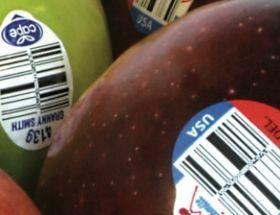
The US Department of Agriculture (USDA) has announced in a statement it will issue its final rule on mandatory country of origin labeling program in the Federal Register on Thursday (15 January). The final rule will take effect on 16 March (60 days after the date of publication) and concludes the rulemaking process for mandatory COOL.
“This is the culmination of a process that began in 2002 as we now have in place the rules and guidance that will dictate how consumers will be informed about country of origin information for produce,” said Robert Guenther, senior vice-president of public policy for United Fresh, in a press release.
“Since the beginning of this process, United Fresh has helped drive this significant policy decision into a workable and cost-effective labeling program for fresh and fresh-cut produce. USDA's final rule is a positive step in that direction. It is now incumbent upon the entire supply chain to continue to work together and take steps to reduce total supply chain cost and minimize potential for market disruption,” Mr Guenther explained.
The rule covers muscle cuts and ground beef, lamb, chicken, goat and pork; wild and farm-raised fish and shellfish; perishable agricultural commodities (specifically fresh and frozen fruits and vegetables); macadamia nuts; pecans; ginseng and peanuts.
Commodities covered under COOL must be labeled at retail to indicate its country of origin. Commodities are excluded from mandatory COOL if the commodity is an ingredient in a processed food item. Also exempt are food service establishments, such as restaurants, lunchrooms, cafeterias, food stands, bars, lounges and similar enterprises.
The final rule outlines the requirements for labeling covered commodities and the recordkeeping requirements for retailers and suppliers. The law provides for penalties of up to US$1,000 per violation for both retailers and suppliers not complying with the law.
The rule prescribes specific criteria that must be met for a covered commodity to bear a ‘United States country of origin’ declaration. In addition, the rule also contains provisions for labeling covered commodities of foreign origin, meat products from multiple origins, ground meat products, as well as commingled covered commodities.
USDA plans to make funding available to accelerate and expand training of state cooperator employees, initiate development of an automated review tracking system, conduct a retailer survey, conduct audits of the retail supply chain and continue conducting education and outreach activities.
Currently, the USDA has cooperative agreements with 42 states to conduct retail surveillance reviews. The USDA will conduct the retail reviews in the states not covered by a cooperative agreement and perform the supply chain audits.
Copies of the final rule and additional information are on display on line at http://www.ams.usda.gov/COOL



